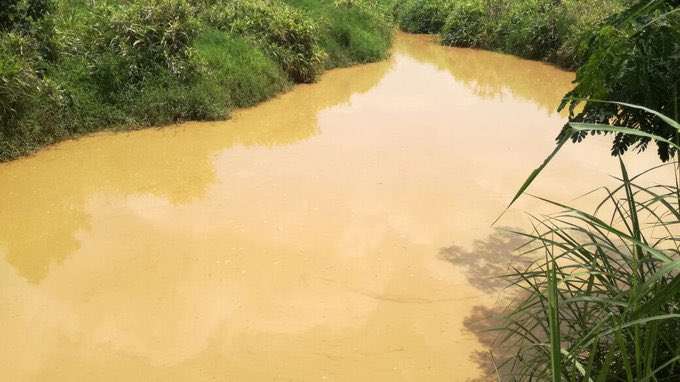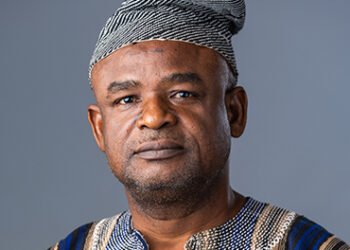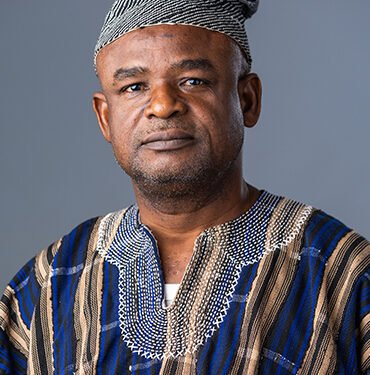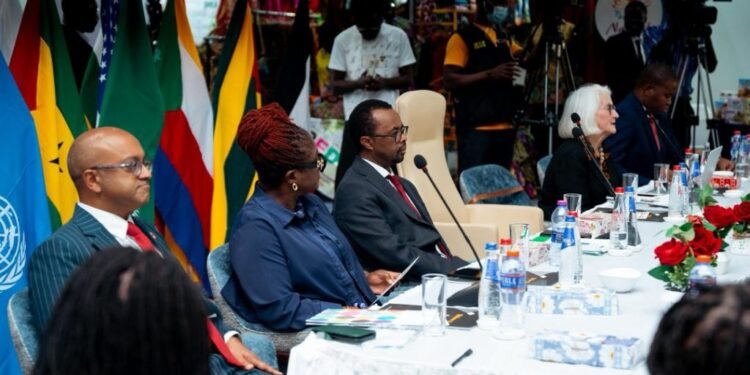The University Teachers Association of Ghana (UTAG) has issued a powerful call for an immediate and total ban on all forms of mining and prospecting for gold and other minerals in the country’s forest reserves, agricultural lands, and water bodies.
This demand comes in response to the devastating environmental and health impacts of illegal mining, commonly known as “galamsey,” which continues to ravage Ghana’s natural resources.
In a press release issued by the National Secretariat of UTAG, the association voiced its concerns about the ongoing destruction of Ghana’s forests, rivers, and farmlands.
Galamsey activities have become a significant threat to both the environment and the nation’s future economic prosperity, the association stressed, as state-led efforts to combat illegal mining have largely failed.
The press release emphasized the urgency of immediate action, declaring, “The time for action is now. All forms of small-scale mining must be banned immediately.”
The health effects of galamsey cannot be ignored either, UTAG warned. The Ghana Health Service (GHS) has recorded a 35% rise in respiratory diseases in mining communities, where harmful pollutants, including mercury, arsenic, and lead, have contaminated water bodies, soil, and food supplies.
The presence of these toxic chemicals in the environment has raised alarms about long-term health consequences, particularly for vulnerable populations such as children and the elderly.
“The situation correlates very well with high levels of particulate matter and harmful chemical toxins such as mercury, arsenic, lead, cadmium, and chromium found in water bodies, soils, and foods in these mining areas.”
UTAG described these developments as the work of “greedy people whose quest for wealth is insatiable,” and called for urgent measures to address the root causes of the galamsey crisis.
A Call for Action

UTAG’s call for a nationwide ban on mining comes at a critical time, as Ghana grapples with the environmental consequences of unregulated mining activities. Experts have warned that if the current trend continues, the nation may face severe shortages of potable water within the next six years.
The degradation of water bodies due to illegal mining is already having a ripple effect on various sectors, with agricultural productivity—particularly cocoa farming—suffering a severe decline.
“Cocoa productivity, once a cornerstone of our dear economy, has declined by 45% this year,” UTAG pointed out, highlighting the economic implications of the environmental crisis. This sharp reduction in cocoa yields has significant repercussions, as cocoa is one of Ghana’s major exports, contributing substantially to the national economy.
In addition to the impact on agriculture, the press release also noted the staggering economic losses attributed to illegal mining. The association cited estimates that illegal mining activities are costing the economy approximately $2.3 billion annually.
The destruction of over 2.5 million hectares of forest cover, as reported by the Forestry Commission, has further compounded the crisis.
The press release was particularly critical of government-led efforts to combat illegal mining, such as Operation Vanguard and Operation Flashout. These initiatives, which have involved military interventions to curb galamsey, have been described by many scholars as “failed and corruption-infested militarized battles.”
UTAG echoed these criticisms, stating, “Government-led initiatives like Operation Vanguard, Operation Flashout, and other state-led efforts have been monumental failures.”
According to the association, small-scale mining has increasingly become a tool for the political elite, chieftaincy leaders, and other influential figures to enrich themselves, rather than serving the broader interests of the nation. This, they argued, has perpetuated the illegal mining problem, with little to no meaningful accountability or progress toward resolving the crisis.
“It does not appear that the rigid and bold stands of some traditional leaders like the Asantehene, Otumfour Nana Osei-Tutu II, against this menace would yield the desired results with the carnage currently on the rise.”
University Teachers Association of Ghana (UTAG)
UTAG called on all Ghanaians to unite in the fight against galamsey and work together to protect what remains of the country’s natural resources. The association urged citizens to support their call for a complete ban on all mining activities in forest reserves, farms, and rivers, framing the issue as a matter of national survival.
UTAG also issued a stern warning to the government, indicating that it would take further action if their demands were not met. The association declared its intention to collaborate with other labor unions in Ghana to push for decisive action.
Should the government fail to impose a total ban on mining by the end of September 2024, UTAG has vowed to embark on a nationwide industrial action.
“We have taken this principled stand against galamsey because our lives depend on it. We shall not waive our demand for the complete and total ban of galamsey.”
University Teachers Association of Ghana (UTAG)
“It’s time to #BANgalamsey and ban it for good!” UTAG declared as the nation waits to see if this rallying cry will spur the necessary reforms to halt the environmental degradation caused by illegal mining.
READ ALSO: Reeves Faces Pressure Over Major Tax Reforms























